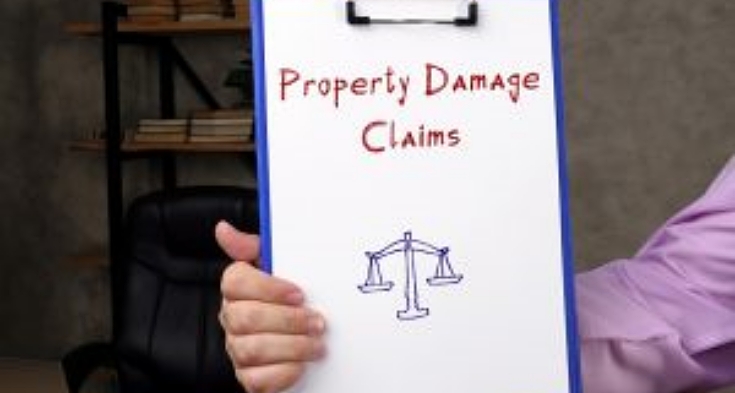
When the Florida Department of Health (DOH) or one of its licensing boards issues a Final Order, the consequences can be devastating. For healthcare professionals, including physicians, nurses, pharmacists, and occupational therapy assistants, a Final Order can mean the suspension or revocation of a license, costly fines, or long-term restrictions on professional practice. Careers, reputations, and livelihoods can all be jeopardized in an instant.
At Elevate Legal Services, PLLC, we understand how overwhelming this process can be. Based in Boca Raton, our law firm focuses on defending professionals against DOH violation administrative complaints and administrative law hearings. If you have received a Final Order and need to challenge it, call us today at 561-770-3335 or email [email protected]. Acting quickly may save your license and your future.
What Is a Final Order in Florida DOH Cases?
A Final Order is the written decision that concludes a DOH disciplinary process. It can follow a hearing before an administrative law judge or result from a settlement. Once issued, the order is legally binding.
The scope of a Final Order can vary, but it often includes disciplinary measures such as suspension or revocation of a professional license, monetary fines, probationary conditions, or mandatory continuing education requirements. Even seemingly minor sanctions can damage a professional’s reputation and affect their ability to work.
Because of the immediate and far-reaching impact of a Final Order, it is critical to understand your appellate rights and act promptly if you wish to challenge the outcome.
Your Right to Appeal Under Rule 9.110(c)
Florida law gives licensed professionals the right to appeal adverse decisions through the Florida Rules of Appellate Procedure, specifically Rule 9.110(c). This rule allows professionals to seek review of a Final Order by filing a Notice of Appeal with the appropriate District Court of Appeal.
The appellate court does not conduct a new trial. Instead, it reviews the record of the administrative proceedings to determine whether the DOH’s decision was supported by competent, substantial evidence and whether it complied with Florida law.
Filing a Notice of Appeal under Rule 9.110(c) is not optional if you want to challenge a Final Order. It is the only path to judicial review, and strict deadlines apply.
How Long Do You Have to File an Appeal?
Time is a crucial factor in DOH appeals. Under Rule 9.110(c), the Notice of Appeal must be filed within 30 days of the “rendition” of the Final Order. Rendition occurs when the order is officially filed, and all post-hearing motions are resolved.
This 30-day window is non-negotiable. If you fail to file within the deadline, your right to appeal is lost forever. Acting quickly is essential, and this is where engaging experienced appellate counsel like Elevate Legal Services, PLLC makes all the difference.
Where Do You File a Notice of Appeal?
The Notice of Appeal must be filed in two places. First, it must be filed with the Florida Department of Health or the licensing board that issued the Final Order. Second, it must be filed with the Clerk of the appropriate District Court of Appeal.
Florida has five District Courts of Appeal, and jurisdiction depends on where the agency is located or where the case arose. Filing in the wrong court, or failing to file in both required places, can result in dismissal of your appeal. A knowledgeable appellate lawyer ensures that your filing is accurate, timely, and jurisdictionally correct.
What Should the Notice of Appeal Include?
Although the Notice of Appeal is a relatively short document, it must be carefully drafted. It needs to identify the parties, specify the Final Order being appealed, and name the appellate court that will review the case. It must also be signed, properly filed, and accompanied by the required filing fee in the appellate court.
Even small mistakes, such as omitting key details or filing incorrectly, can result in dismissal. That is why it is unwise to attempt this process without professional legal guidance.
The Appeals Process After Filing
Once your Notice of Appeal is filed, the case is transferred to the District Court of Appeal. The DOH prepares the record of the administrative proceedings, and you, as the appellant, may designate additional documents for inclusion.
Your attorney will then submit a written appellate brief explaining why the DOH’s Final Order was flawed. The DOH responds with its own brief defending the decision. In some cases, the court may schedule an oral argument where attorneys present their positions and answer judges’ questions.
The appellate judges then issue a written opinion, which may affirm, reverse, or modify the DOH’s Final Order.
Common Grounds for Appeal
Professionals often succeed in appeals when they can demonstrate that the DOH’s decision was not supported by law or evidence. Some common grounds for appeal include:
- The Final Order lacked competent, substantial evidence.
- The agency misapplied the law or relied on an incorrect interpretation.
- The DOH violated procedural due process rights during the hearing.
- The penalty imposed was excessive or an abuse of discretion.
While not every Final Order will be overturned, strong appellate arguments can lead to reduced penalties, remands for new hearings, or outright reversals.
Final Orders vs. Emergency Suspension Orders
It is important to distinguish between Final Orders and Emergency Suspension Orders (ESOs). Final Orders are appealed under Rule 9.110(c), while ESOs are reviewed under Rule 9.100. ESOs are used when the DOH believes a professional poses an immediate danger to the public. They take effect immediately, often without a hearing, and must be challenged on an expedited basis.
If you are an occupational therapy assistant, nurse, or physician facing an ESO, your attorney may also seek a stay of enforcement to allow you to continue practicing while the appeal is pending.
Mistakes That Can Cost You an Appeal
Professionals facing DOH discipline often lose their right to appeal because of avoidable errors. Missing the 30-day deadline, filing only with the court and not the DOH, or submitting an incomplete Notice are some of the most common mistakes. Choosing the wrong appellate court or failing to designate the correct record can also undermine your case.
These errors highlight why you should not attempt to handle a DOH appeal without experienced legal representation.
Why Elevate Legal Services, PLLC Is the Right Choice
At Elevate Legal Services, PLLC, we focus on defending professionals in Florida DOH disciplinary cases. From initial administrative complaints to final appellate review, we provide strategic, aggressive representation tailored to protect your license and your livelihood.
We know how to navigate the complexities of appellate law, draft persuasive briefs, and identify the weaknesses in the DOH’s case. Our attorneys understand the importance of swift action and careful preparation when a Final Order threatens your career.
Call 561-770-3335 or email [email protected] today to speak with a lawyer who will fight for your rights.
Conclusion: Protect Your License Through a Timely Appeal
The issuance of a Final Order by the Florida Department of Health is not the end of the road. Through Rule 9.110(c), you have the right to appeal and seek judicial review before a District Court of Appeal. However, the process is unforgiving, with strict deadlines, complex procedures, and mistakes that can permanently end your chance to challenge the order.
If your license, reputation, and future are at stake, you need a law firm that knows how to fight back. Elevate Legal Services, PLLC, is here to defend your rights, guide you through the appellate process, and help safeguard your career.
Call us now at 561-770-3335 or email [email protected] to schedule your consultation.





